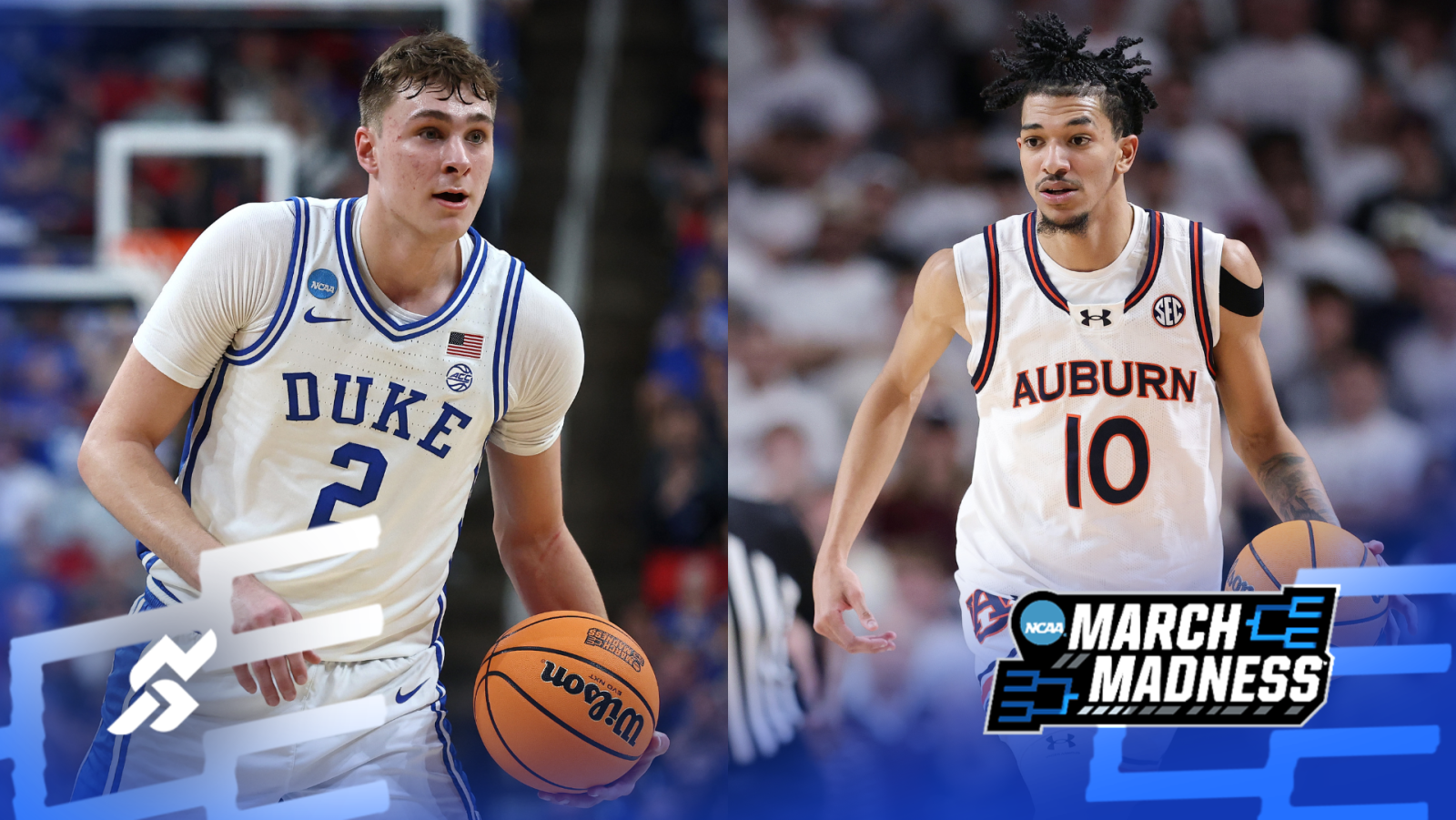

Auburn small forward Chad Baker-Mazara, who scored 17 points in the Tigers’ second-round win over Creighton on Sunday, has not had a traditional college basketball career. After playing a postgraduate season at Spire Academy in 2020, he spent his freshman year at Duquesne, then transferred to San Diego State, transferred again to Northwest Florida State College (a JUCO) and then finally transferred to Auburn, where he stayed for a fifth year of eligibility. He’s 25 years old.
Ten years ago, not a single Sweet 16 starter was older than 23. In 2025, Baker-Mazara isn’t even the oldest starter remaining in the NCAA Men’s Basketball Tournament—that title belongs to BYU’s 26-year-old guard Trevin Knell.
College basketball has gotten older across the board. In 2019, the year before the COVID-19 pandemic, the average age of Sweet 16 starters was 20.8. In 2021, that number had jumped to 21.2, and now it’s all the way up to 21.6. More than three-quarters of the players who will start on Thursday and Friday night can legally grab a drink after their game.

No. 1 seed Auburn’s starting five averages 23.2 years old. For comparison, in a Tuesday NBA game between the Utah Jazz and Memphis Grizzlies, the average age of the 10 starters was exactly 23. In fact, five NBA teams’ most recent starting lineups were younger than Auburn’s, including the Washington Wizards at 21.2.
The primary reason for college’s basketball age increase is the establishment of the transfer portal in 2018 and the subsequent relaxing of rules related to transferring. Prior to 2021, athletes had to sit out a year following a transfer, except in a few select circumstances. In 2021, though, the NCAA Division I Council gave all athletes the opportunity to transfer once and immediately be eligible. In 2024, multi-time transfers were also granted immediate eligibility.
Sportico will be publishing daily stories about March Madness throughout the men’s and women’s tournaments. To receive them in your inbox daily, sign up here via Club Sportico.
The result is that, rather than relying on younger high school recruits, basketball powerhouses now find the majority of their talent from the transfer portal. Indeed, just 29 of the 80 starters in this year’s Sweet 16 began their college careers for their current team, as this graphic brilliantly shows. Only 11 of them are freshman.
Recent NCAA Tournaments have also demonstrated the importance of experience, fueling teams’ desire to court and feature upperclassmen. The 2021 Baylor and 2022 Kansas national championship squads were nearly entirely composed of upperclassmen, and UConn started just one freshman for each of its back-to-back titles in 2023 and 2024.
In addition to allowing programs to mine valuable older players, the transfer portal has given players the opportunity to freely move between schools, perhaps enticing some to stay in college rather than pursue a professional career. The ability to earn money for their name, image and likeness (NIL), which was granted in 2021, is another carrot alluring players to stick around longer.
Lastly, the NCAA granted an extra year of eligibility to players who played during the COVID-impacted seasons of 2020 and 2021. That effect will mostly phase out after this season, but it’s had a huge impact on roster age. Auburn’s leading scorer, Johni Broome, for instance, is in his fifth season.
The COVID exemption is one of several reasons the 26-year-old Knell is still in college. He took two-year Mormon church mission following high school, fairly common among BYU athletes, so he didn’t begin his college career until 2019-20, when he was 21 years old. He used a medical redshirt year in 2022-23 after sustaining a rotator cuff injury, and is now a crucial player in 2025 March Madness during his fifth active season.

As the landscape of college basketball gets older, there’s one big exception: The Duke Blue Devils have not budged from their recent youth-oriented approach. Spearheaded by 18-year-old phenom Cooper Flagg, their starters are just 19.4 years old on average. That’s more than a year younger than any of the 15 other remaining teams, and the exact same average as Duke’s 2015 national championship team, the youngest of the Sweet 16 lineups in that year as well.
For the Blue Devils, going young is the norm. In 2019, their starting lineup featuring Zion Williamson, R.J. Barrett and Cam Reddish had an average starter age of just 18.8. That team was one of the most hyped in recent college basketball memory, but flamed out in the Elite Eight.
This year’s Duke youngsters are attempting to buck the trend that experience and continuity are keys to success in college basketball. And if Duke ends up playing Auburn in the finals, it will be a matchup that quite literally separates the men from the boys.
